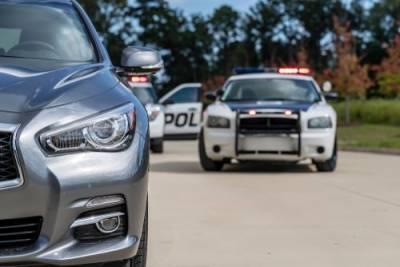What Is a “Sobering Center” and How Can It Prevent DWI Charges in Texas?
 It is late. You are drunk and far away from home. You know driving at this stage of drunkenness would be illegal, but you also cannot afford the money necessary to get all the way back home from where you are. What are your options? Call a friend or family member? “Sleep it off” on a public bench and risk being arrested? Risk driving home anyway and then eventually getting charged with DWI (driving while intoxicated) or worse depending on what happens while you are driving drunk? There is another option all across Texas, including the “Sobering Unit” at Roberto L. Jimenez M.D. Restoration Center (“Drunk Tank” for “down-and-outs”) in San Antonio. These sobering centers offer a compelling alternative for both law enforcement and drunk civilians, including those contemplating driving home drunk. Here is why.
It is late. You are drunk and far away from home. You know driving at this stage of drunkenness would be illegal, but you also cannot afford the money necessary to get all the way back home from where you are. What are your options? Call a friend or family member? “Sleep it off” on a public bench and risk being arrested? Risk driving home anyway and then eventually getting charged with DWI (driving while intoxicated) or worse depending on what happens while you are driving drunk? There is another option all across Texas, including the “Sobering Unit” at Roberto L. Jimenez M.D. Restoration Center (“Drunk Tank” for “down-and-outs”) in San Antonio. These sobering centers offer a compelling alternative for both law enforcement and drunk civilians, including those contemplating driving home drunk. Here is why.
“Sobering Center” Defined
Sobering centers are seen as intermediaries between actual arrests with legal consequences for drunkenness that disrupts the peace and expensive hospital visits for excessive drinking. In short, these sobering centers are short-term recovery facilities where drunk or otherwise inebriated civilians can “sleep it off” and get a chance to regain their sobriety less the headaches of the morning after with the option to continue with recovery programs and other treatment options.
What Makes Sobering Centers a Productive Alternative to DWI?
While originally intended as a means to get drunk people off the streets and into recovery programs, should they choose, the sobering centers have proven themselves useful in many ways to many people for a multitude of different reasons:
- The police appreciate sobering units and sobering centers because they give them more time to focus on the beat—it only takes about 20 minutes at intake and from there the person being admitted is the center’s/unit’s responsibility, not the arresting officer’s responsibility.
- Judges, lawyers, and the courts are grateful for minor infractions like public intoxication no longer clogging the local justice system with misdemeanors chock-full of unnecessary paperwork and seemingly wasted time.
- Ultimately, for both the police and the courts, sobering centers free them up to focus on more serious offenses.
- Homeless people can get off the street for at least one night and into a bed for the evening. They might have the option to enroll in a long-term alcoholism recovery program if that would make sense in their cases.
- These sobering centers and units also treat admittees with drug and other substance abuse problems. These centers are equipped with similar features that drug and alcohol rehab centers have, making them more medical than punitive.
If you ever think about driving home drunk, you might consider getting admitted into one of these centers for the evening, especially if the thought of driving drunk crosses your mind often due to the circumstances in which you find yourself involved. Perhaps you do have an alcohol or drug problem that requires professional attention. It is better to enter one of these centers/units than to be charged with a serious criminal offense, getting a criminal record, and possibly even being convicted of DWI.
Contact a San Antonio DWI Defense Attorney
While sobering centers sound like a helpful alternative to DWI, you might still end up driving under the influence (DUI) anyway. If that is the case for you, then call a skilled San Antonio criminal defense lawyer immediately. Reach out to the Law Offices of Sam H. Lock at 210-226-0965 for a
Sources:
https://www.tpr.org/news/2017-07-12/san-antonios-frontline-of-addiction-the-sobering-unit
https://world.wng.org/2020/11/sleeping_it_off
https://www.txdot.gov/inside-txdot/division/traffic/safety/sober-safe/intoxication.html





